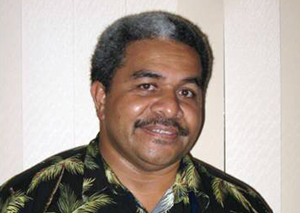
Michael Sergel and Finian Scott
WELLINGTON (Pacific Media Centre / Pacific Media Watch): Pacific leaders have agreed on the importance of Parliament and the media, but have disagreed on how separate the two institutions should be at a political forum in New Zealand.
Matai Akauola, manager of the Fiji-based Pacific Islands News Association (PINA), told delegates that journalists in his country have increasing freedom to criticise the government.
He said Parliament and the media had “important and different roles”, but online media posed a threat to the stability of government by “leaking” official government documents.
But Labour MP Phil Goff, a New Zealand delegate at the forum, told delegates that censorship did not have to be direct, and the greatest threat to the freedom of the Fijian media was “self-censorship for fear of retribution”.
“The first objective of the media is not to represent authority, but to be fearless in challenging authority,” he said.
“You cannot have vogue media and you need regulation, but the media is one way that stops power from becoming absolute.”
Corporate pressure
For Papua New Guinea’s Oro (Northern) Province governor, Garry Juffa, corporate propaganda was as bad as government propaganda.
He urged delegates “to be careful that the corporate world doesn’t use the media” to persuade politicians to “accept ridiculous trade agreements”.
Equally, he said “we have tribal warfare, we have high rates of crime, and some of these places are very difficult for the media to reach” and the freedoms provided by social media could open up reporting of previously unknown and important stories.
Former Tongan Prime Minister Dr Feleti Sevele and Tongan MP Sione Sangaster Saulala believe that the media should be responsible and culturally sensitive, rather than being sensational and oppositional.
“The media needs to understand the culture in which it operates and reports,” Lord Sevele told gathered journalists from Pacific Scoop and other outlets during his address on parliaments in the Pacific.
“David Lange ended up marrying a journalist” and that is too close a relationship between the government and media, Dr Sevele quipped in his delivery.
Samoan cabinet minister Fiame Naomi Mata'afa said it was important that the Samoan media was able to keep the government to account.
Digital media
Vanuatu cabinet minister Ralph Regenvanu said radio stations and newspapers were not as widely available in his country as new digital and social media.
He said the increased availability oof mobile phone apps - which provided access to talkback radio programmes, Facebook debate forums and Facebook campaign pages - was a “positive thing for positive participation and direct democracy”.
Radio New Zealand political editor Jane Patterson also addressed delegates on the challenges of representing both indigenous and non-indigenous perspectives, and all political parties, in reporting political developments.
She said "rogue media" were a clear and present threat, but any government-lead media regulation could be a threat to democracy.
Michael Sergel and Finian Scott are Postgraduate Diploma in Communication Studies student journalists at AUT University. They are covering the Pacific politics forum for Pacific Scoop and the Pacific Media Centre as an Asia-Pacific Journalism assignment.
PACIFIC PARLIAMENTARY AND POLITICAL LEADERS FORUM
Background
Michael Sergel's live blog
Also at Pacific Scoop
Peters warns over the seduction of China
Enterprising journalism students scoop the Pacific politics forum


